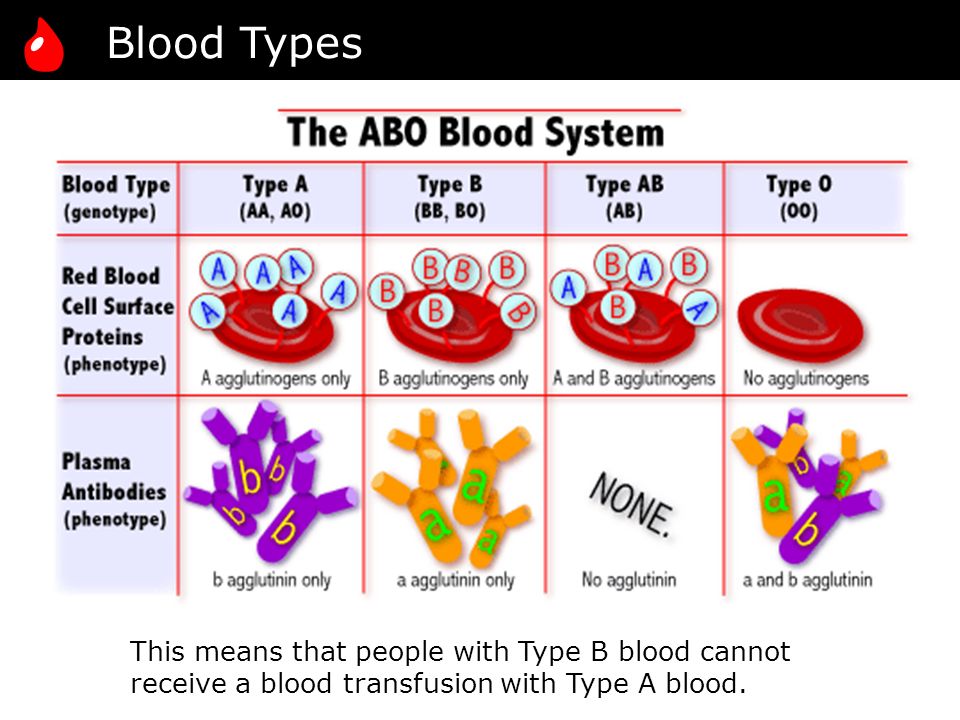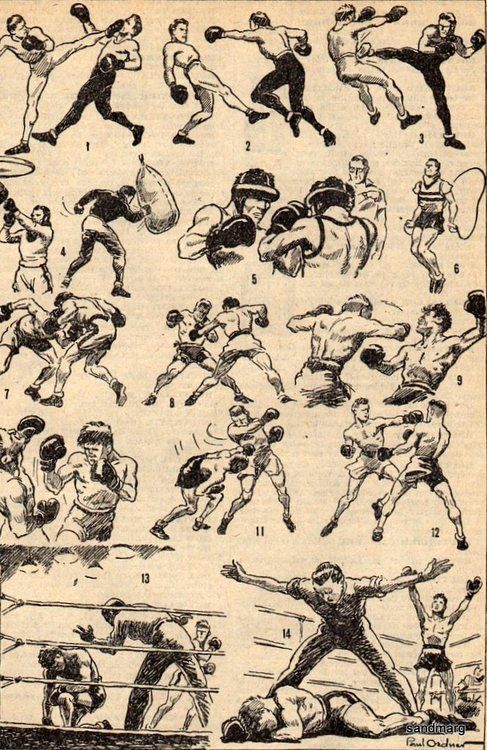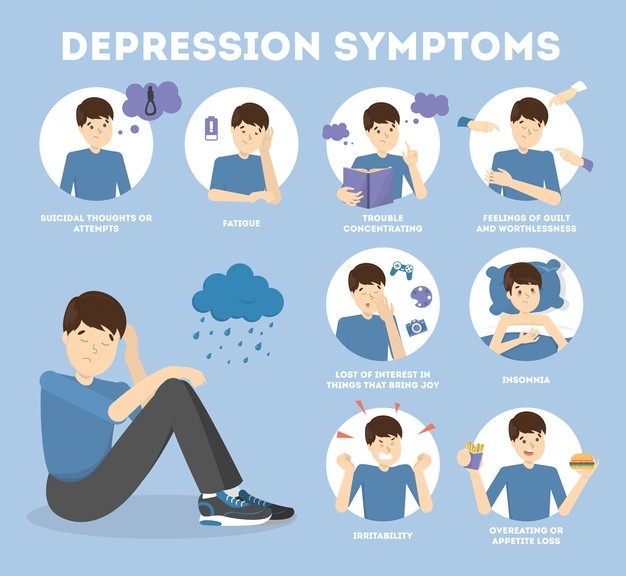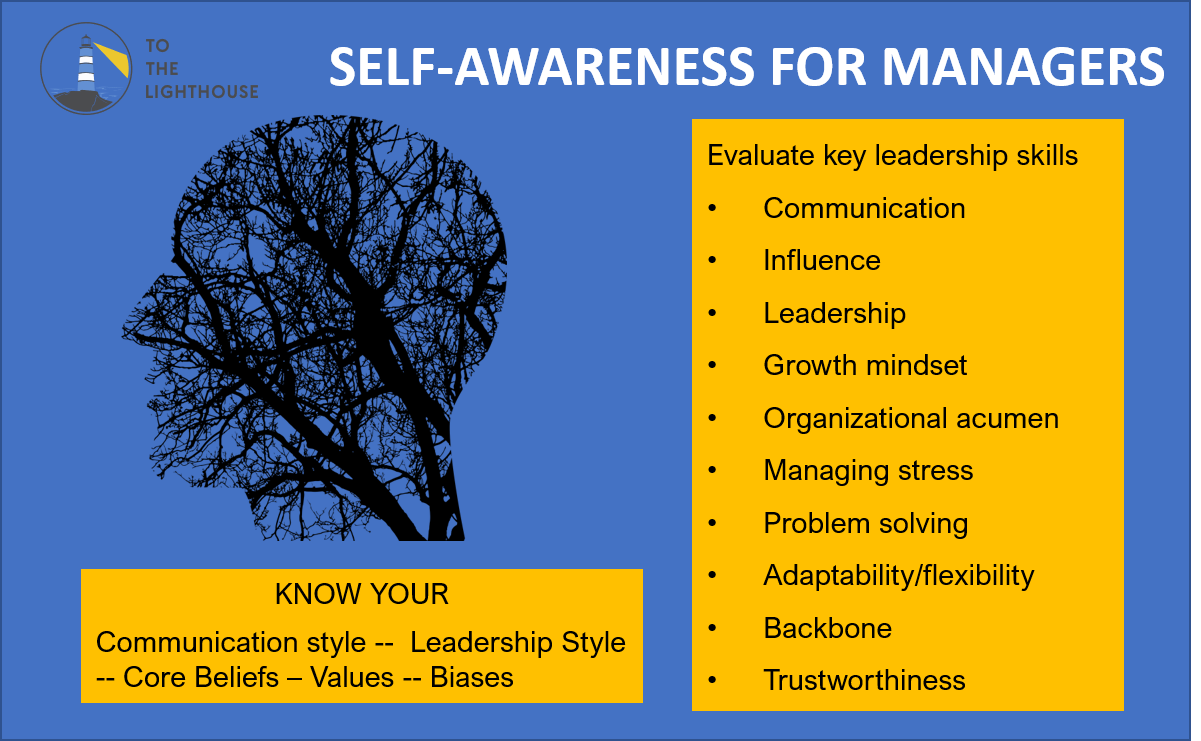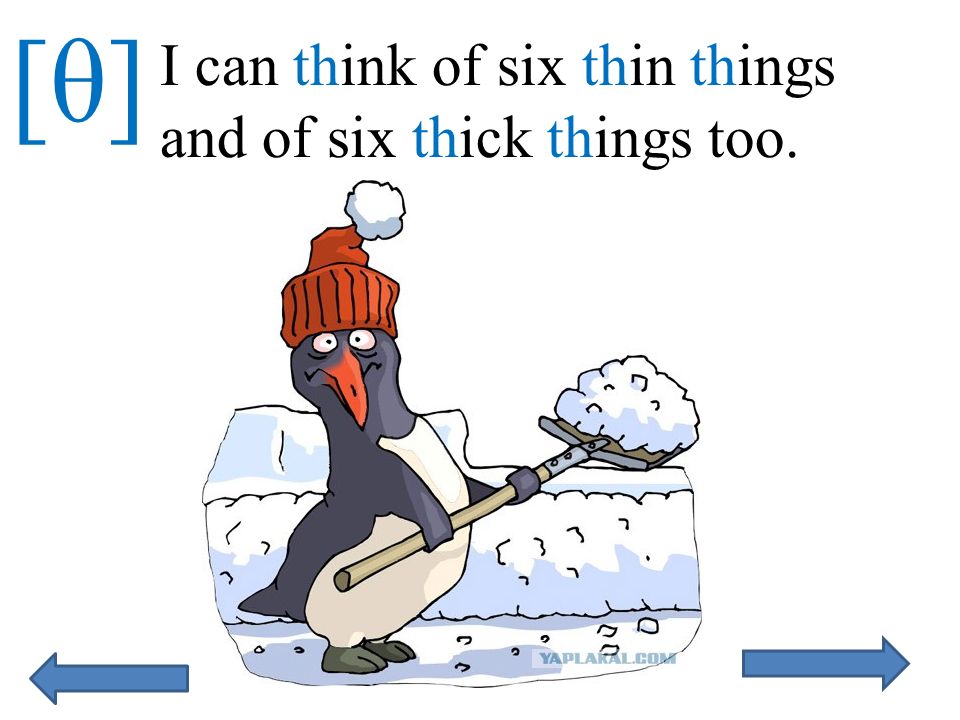Making the right decision
Decision making 101 | Problem solving
Life is full of choices. Some are easy, such as what to have for dinner (cheeseburger thank you), and others, more serious, like, for instance, choosing a career. Regardless of how important a decision is, good decision skills are useful in life, especially if you feel indecisive about something and it’s getting you down. Get tips on how to make good decisions, and find out what to do when you can’t figure out a plan.
Why good decision making helps
People make decisions all throughout their day, most of which are straightforward and don’t require much thought. However, when situations are more complicated and have longer term impacts, it’s easy to feel unsure or hesitant.
When faced with a tough decision it’s common to feel:
- overwhelmed
- stressed or anxious
- wound up
- pressured
- confused
- distracted
- tired
Because indecision can have a negative impact on how you’re feeling, it’s important to learn strategies for making positive decisions in tough situations. While you may not be able to guarantee the outcome of a decision before you make it, at least you can know you put a lot of careful thought into it.
Tips for making decisions
Step 1. Don’t let stress get the better of you. It’s easy to feel stressed out and anxious when you’re facing a tough choice. You might tend to rush your decisions without thinking them through, or you avoid making a decision at all because the stress has put you off your game. If you’re feeling anxious about a decision, try to manage your stress so that it doesn’t cloud your thinking. Go for a walk on the beach. Hit up a yoga class or hang out with friends.
Step 2. Give yourself some time (if possible). It’s hard to think clearly under pressure, and sometimes your first idea isn’t always your best one. Give yourself the chance to sit on a problem for a while so that you can process your options and feel confident about the course of action you choose.
Step 3.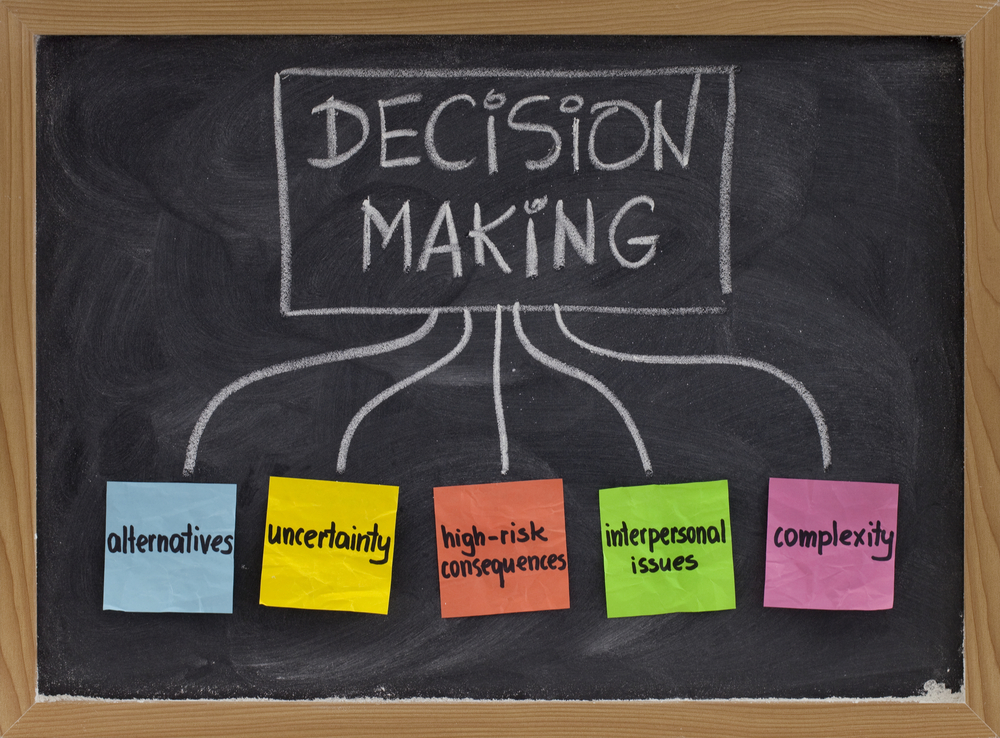 Weigh the pros and cons. When faced with a big decision, sometimes we lose sight of the big picture. Write a list of pros and cons for each course of action and then compare them. Sometimes the cons aren’t nearly as bad as we imagine them to be, or the pros might make your options more obvious.
Weigh the pros and cons. When faced with a big decision, sometimes we lose sight of the big picture. Write a list of pros and cons for each course of action and then compare them. Sometimes the cons aren’t nearly as bad as we imagine them to be, or the pros might make your options more obvious.
Step 4. Think about your goals and values. It’s important to be true to ourselves and what we value in life. When you factor into a decision the things that are important to you, the best option might become obvious. At any rate, you’re more likely to end up with an outcome you’re happy with.
Step 5. Consider all the possibilities. Making a decision can result in several different outcomes and not all of them may be obvious. When considering each option, don’t just list the positives and negatives; write down any likely consequences.
Step 6. Talk it out. It can be helpful to get another person’s perspective on your issue, particularly if they’ve faced a similar decision in their own life.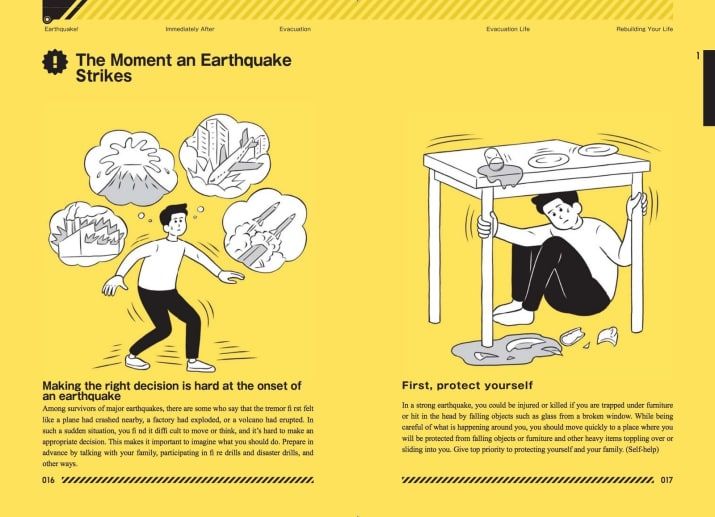
Step 7. Keep a diary. If you feel like you’re on a bit of an emotional rollercoaster, it might help to keep track of your feelings by writing them down.
Step 8. Plan how you’ll tell others. If you think someone may have a bad response to your decision, think through what their reaction is likely to be. Put yourself in their shoes to help you think of a good way to manage the situation.
Step 9. Rethink your options. If you’re up against a lot of pressure over a decision, or there are some new factors to consider, look over your options again. You might decide that your original decision is still the best one, but give yourself the option of changing course. If a decision no longer feels right for you, go through these steps again to figure out a better solution.
If you’re having a tough time
If you’re feeling overwhelmed with negative feelings because you’re facing a tough decision, it’s important to look after yourself.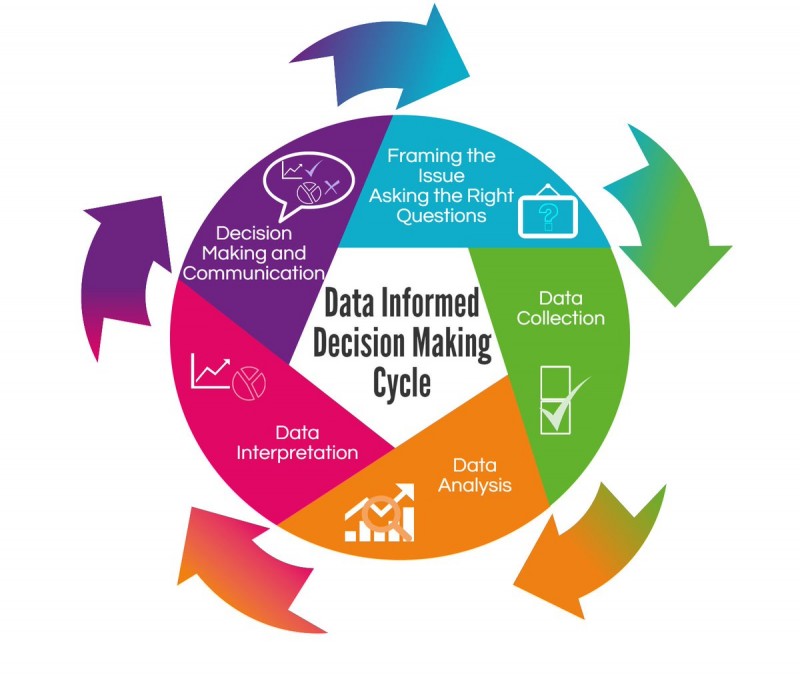 Take some time out to relax or do something you enjoy.
Take some time out to relax or do something you enjoy.
If you’re finding your indecision over a situation is affecting how you get on day to day, it’s a good idea to talk to someone you trust, or visit a counsellor. They’ll be able to help you work through the process of decision making, and guide you through different strategies.
What can I do now?
- Work on your problem solving skills.
- Talk to someone you trust about your situation and see if they have any insights to offer.
- Learn about building good coping skills.
Explore other topics
It's not always easy to find the right place to start. Our 'What's on your mind?' tool can help you explore what's right for you.
What's on your mind?
How to Make the Right Decision
By following a few simple rules, you can learn to choose wisely.
By Catherine Price
Photo: Levi Brown
I felt like punching Benjamin Moore in the face. My husband and I had just moved across the country, and after a flurry of big decisions, we were down to the nitty-gritty: what color to paint our new apartment. The previous tenant had gone with blood red, midnight blue, and tan—a look I referred to as "depressed Betsy Ross." Hoping to achieve something more cheerful, we sat on the floor surrounded by dozens of paint samples—Classic Gray or October Sky? Silken Pine or Mystic Beige?—when all I really wanted was to be able to just flip a switch in my brain and let my rational self determine the perfect choice.
It turns out, though, that for most people there is no such thing as a purely rational self. Decision making is intrinsically linked to our emotions, so much so that when a person suffers damage to her orbitofrontal cortex—a part of the brain just behind the eyes that's strongly involved in processing emotions—she can lose her decision-making ability entirely.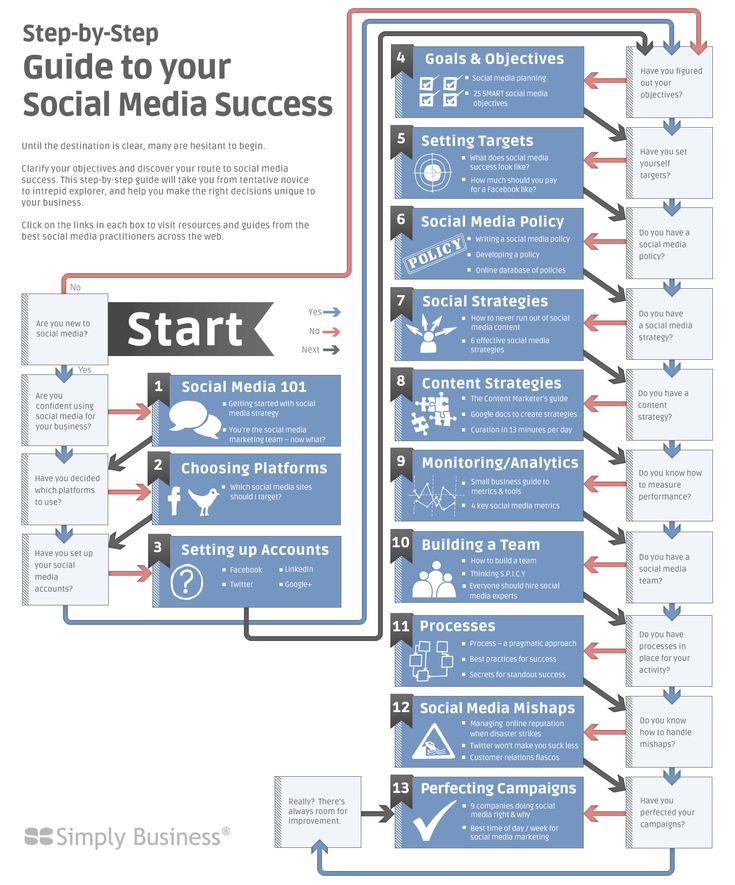 (We're talking any decision, like which day to schedule a doctor's appointment or whether to use a blue or black pen.) "If it weren't for our emotions," says science writer Jonah Lehrer, author of How We Decide, "reason wouldn't exist at all."
(We're talking any decision, like which day to schedule a doctor's appointment or whether to use a blue or black pen.) "If it weren't for our emotions," says science writer Jonah Lehrer, author of How We Decide, "reason wouldn't exist at all."
One way our emotions help us decide is by creating a physical response to information we don't even realize we've noticed. When we slam on the brakes at the sight of an unexpected car, for example, it's because our subconscious mind has recognized danger and translated it into a flash of fear; we decide to act without any conscious thought.
But our emotions can also lead us astray, as when they encourage us to give a doomed relationship another try or to keep feeding quarters into a slot machine. Since every choice represents a battle between your rational conscious and emotional subconscious minds, the key to good decision making is learning how to pick which side should win.
The best decision makers let the situation guide them.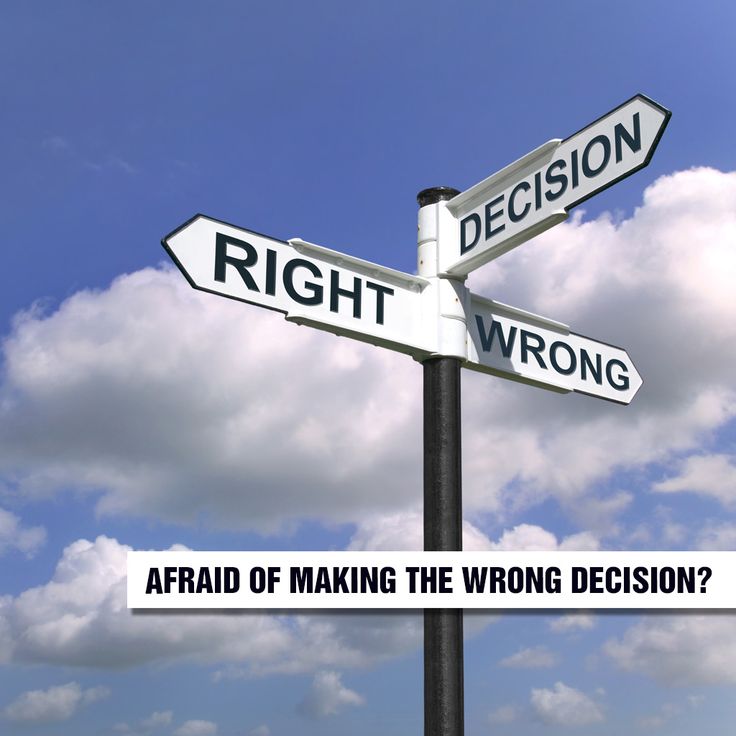 The more experience you have with a particular type of decision, the safer it is to go with your intuition, since your subconscious has a wealth of reliable information from which to draw. A professional decorator would have a good instinctive sense of which colors work best for a room, for instance, but if you're a novice like me, it's good to think more analytically.
The more experience you have with a particular type of decision, the safer it is to go with your intuition, since your subconscious has a wealth of reliable information from which to draw. A professional decorator would have a good instinctive sense of which colors work best for a room, for instance, but if you're a novice like me, it's good to think more analytically.
Which is exactly what my husband and I tried to do: After we attempted to gauge our emotional responses to various shades of beige, we began to systematically evaluate how they looked against the door frame. We got nowhere. According to Barry Schwartz, PhD, a psychologist and professor of social theory at Swarthmore College and author of The Paradox of Choice, we were confronting another challenge common to the modern-day decision maker: too many choices.
Anyone who has stood paralyzed in the cereal aisle of the supermarket knows that even if some level of choice is crucial for happiness, too much can feel overwhelming. "We're constantly being told that we can find the best if we try hard enough, and that if we don't, it's our own fault," says Schwartz. "It's a recipe for misery." Too much choice not only makes a decision harder, he continues, but also makes it more likely that we'll regret our selection. To improve our odds of reaching decisions we feel good about, Schwartz suggests figuring out ways to reduce the options to a more manageable number.
"We're constantly being told that we can find the best if we try hard enough, and that if we don't, it's our own fault," says Schwartz. "It's a recipe for misery." Too much choice not only makes a decision harder, he continues, but also makes it more likely that we'll regret our selection. To improve our odds of reaching decisions we feel good about, Schwartz suggests figuring out ways to reduce the options to a more manageable number.
In the end, my husband and I chose Soft Chamois—not because it stood out from all the others but because we ran out of time. The painter was scheduled to come the next day. The irony is that, after all our deliberation, it essentially looks white. A gentle, creamy white—but white nonetheless. There was a time when I would have regretted this and tortured myself wondering if Hot Spring Stones would have looked better. But these days I'm trying instead to live Schwartz's number-one rule of decision making: that good enough is often good enough.
Next: 7 steps to better decisions
7 Steps to Better Decisions
A handy guide to weighing your options.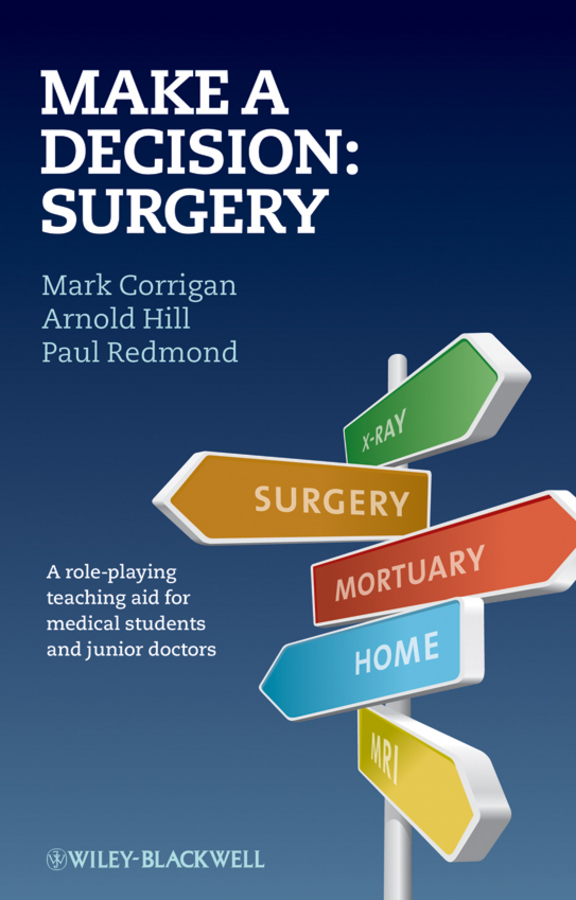
1. Identify your goal.
As David Welch, PhD, professor of political science at the University of Waterloo in Ontario and author of Decisions, Decisions: The Art of Effective Decision Making, explains, "People who aren't self-reflective are going to end up making bad decisions because they don't really know what they want in the first place." Before you switch jobs, ask yourself: Do I really want a different career? Or do I just want a different boss? Don't make a decision based on the wrong problem.
2. Eliminate choices by setting standards.
If you're trying to buy a digital camera, list the features you'll actually use. Any camera that has them is therefore good enough for you; ignore anything fancier. Speaking of which...
3. Don't worry about finding the "best."
How good you feel about your decisions is usually more important than how good they are objectively.
4. Be aware of biases.
They can lead smart people to make dumb decisions.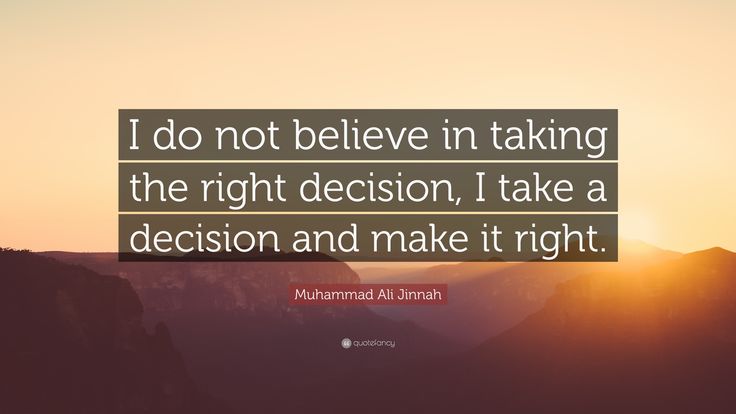 For example: We hate to lose more than we like to win, which can result in behavior such as holding on to a tanking stock instead of accepting a loss. We remember vivid examples better than facts, which is why plane crashes stick in our heads more than statistics on air safety. And we're susceptible to how information is framed—a "cash discount" is more appealing than "no credit card surcharge." Keeping these biases in mind can help you think clearly.
For example: We hate to lose more than we like to win, which can result in behavior such as holding on to a tanking stock instead of accepting a loss. We remember vivid examples better than facts, which is why plane crashes stick in our heads more than statistics on air safety. And we're susceptible to how information is framed—a "cash discount" is more appealing than "no credit card surcharge." Keeping these biases in mind can help you think clearly.
5. Try not to rush.
People tend to make poorer choices when they're in a bad mood or under a lot of stress. When facing a complex decision, use your conscious brain to gather the information you need, and then take a break. Go for a walk. Spend a half hour meditating. Take a nap. Have a beer. The idea is to give your unconscious mind some time to do its work. The decision you make afterward is more likely to be the right (or at least a perfectly acceptable) one.
6. Don't sweat the small stuff.
When possible, eliminate the need for decisions by establishing rules for yourself.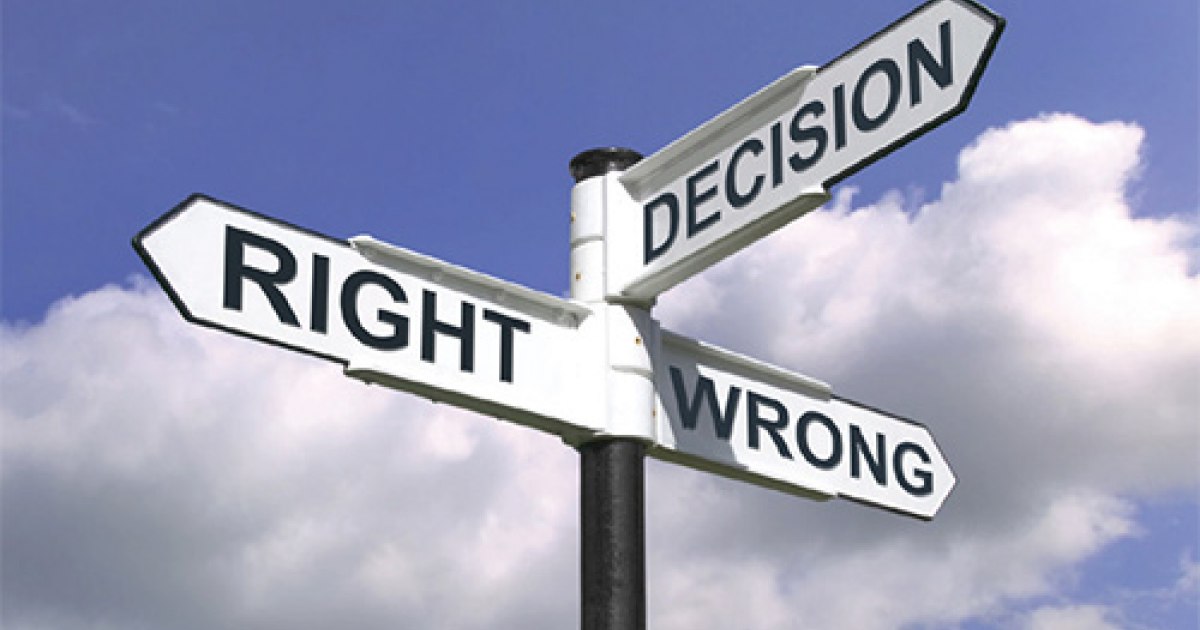 You will go to yoga every weekend. You will not have more than two glasses of wine. You will buy whatever toilet paper is on sale.
You will go to yoga every weekend. You will not have more than two glasses of wine. You will buy whatever toilet paper is on sale.
7. Do a postgame analysis.
After each decision you make, ask yourself how you felt afterward and what about the experience you can apply in the future.
Catherine Price is the author of 101 Places Not to See Before You Die (Harper Paperbacks).
Want to Make a Big Change?
- Reinvention strategies: How to follow your gut
- Can you recognize when it's time for an adventure?
- What Oprah knows for sure about trusting her instincts
From the May 2011 issue of O, The Oprah Magazine.
From the May 2011 issue of O, The Oprah Magazine
NEXT STORY
Best Decision Making Guide
Theodore Roosevelt said, “At the moment of making a decision, the best thing to do is to make the right decision, the worst thing to do is to make the wrong decision, and the worst thing to do is not to make any decision. ”
”
And yet, when it comes to making decisions, we are afraid of taking the wrong step. As a result, we sit idle in the hope that the right decision will come naturally over time. You already know that this is not the best way, especially when it comes to the distribution of work tasks and team management. Instead, it makes sense to identify what skills and tips will help you make faster decisions that previously baffled you.
“Leaders aren't afraid to make decisions,” says behavioral and marketing psychologist Dr. Elliot Jaffa. "It's only for the followers."
Indeed, the ability to make decisions is one of the pillars of effective leadership. But, no offense to Teddy Roosevelt, this is easier said than done. Let's see what strategies will help you develop decision-making skills.
Obstacles to making the best decisions
We have all made good and bad decisions in our lives. Why is this happening? Many factors influence the consequences of our decisions.
“One of the obstacles is the false belief that we don't have time to think,” explains Mike Kallet, CEO of HeadScratchers and author of Think Smarter . “It’s stupid because if you don’t think things through well, you will make mistakes and end up wasting more time, not to mention wasted money and missed opportunities.”
As a result, when it comes to decision making, we often prioritize speed over efficiency. “We get paid to do business,” Kallet continues. “And we ourselves like it when the work goes well. And when we take a break to think about a problem, we often feel like we're wasting time."
Another obstacle to decision making is obsession. “Decision fixation comes from the way our short-term memory works,” says Yolanda Berry, MSc in Behavioral Economics and Principal Consultant at UK Behavioral Economics.
Berry gives a simple example. If you ask someone for the last two digits of their social security number, and then ask them to guess the number of African countries that make up the UN, the number given will be higher if the number was closer to 99 than to one.
“Although there is no direct connection between the two answers, the fact remains that the number left in our short-term memory affects our ability to make correct guesses,” she says.
Decision fatigue is another phenomenon that can seriously affect the search for reasonable decisions. “There is strong evidence that the number of decisions affects their quality,” Berry continues.
Studies have shown that physicians are more likely to prescribe antibiotics at the end of a shift than at the beginning. And judges are more likely to turn down parole requests in the evening than in the morning. This clearly proves that decision fatigue is real. This significantly reduces our chances of making the right choice.
How to Make Good Decisions
Now that we have identified the barriers to making good decisions, it's time to determine which strategies increase our chances of overcoming them. Here are six tips to improve your own decision-making skills.
1.
 Get to the heart of the problem
Get to the heart of the problem If you don't know where to start, Kallet's advice is to first determine what the problem is—what exactly we have to deal with. By clarifying the essence of the problem, you can better prioritize.
“Most of the mistakes in decision making come from not fully understanding the problem and not starting from it, but from the solution found,” Cullet explains.
“What is the purpose of our meeting - is it to make a decision by the time it ends, that is, in an hour, or is it to explore all possible options? asks Teresa Huston, Ph.D. and author of How Women Decide in the Harvard Business Review Ideacast. “These are very different goals.”
By understanding the problem and prioritizing accordingly, you will have a basis for making a more informed decision.
2. Get rid of the need to make secondary decisions
Stop for a moment and remember the most famous entrepreneurs in the world. Now imagine their most famous clothing.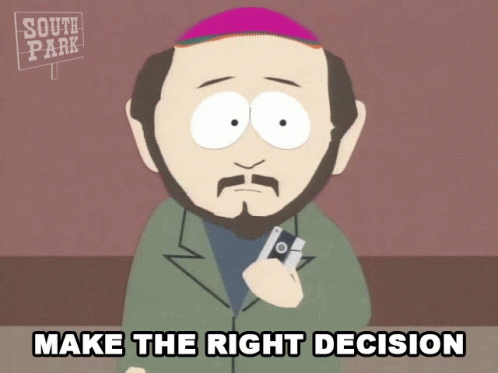 Strange request, right? But I bet you're now imagining Steve Jobs' famous black turtleneck or Mark Zuckerberg's unchanging gray T-shirt.
Strange request, right? But I bet you're now imagining Steve Jobs' famous black turtleneck or Mark Zuckerberg's unchanging gray T-shirt.
We have already discussed the impact that decision fatigue has on the quality of our decisions. By delegating responsibilities, automating work, or even forgoing decisions that you don't have to deal with personally, you can save mental resources for more important things.
"Advance planning and decision making will take some of that fatigue away," says Berry.
Preparing the dinner menu for the whole week in advance, shifting the decision of issues that no longer concern you to the shoulders of another employee - this clearing of mental space can help you a lot.
3. Multiple Choices
“Most people stick to Plan A and never think about Plan B, C, or D,” says Dr. Jaffa. When trying to make a decision, it is important to find options that are truly different from each other.
Houston explains that we easily fall into the trap of being limited to one choice, but convincing ourselves that there really are two: “We often think: should I do this or not? Hire Samantha or not? Should I take a break and walk for half an hour or not? In each of these cases, we have only one choice - I either change something, or stay the same.
Generally, Houston says, it's best to pick three good alternatives. She gives the example of a company deciding whether to build a garage.
“Instead of having a garage or not, here are three options: build a garage, give all employees bus passes, or let them work one day from home,” she continues. “These are all solutions to the same problem, but they are very different from each other.”
If you find several possible choices, the quality of the final decision will naturally improve. In doing so, you really choose the best opportunity, and do not limit yourself to yes or no frames.
4. Develop a structured approach
It's strange to try to structure your decision making. But believe me: it can be a good help for you.
“A great way to minimize the impact of fixation and other cognitive biases is to carefully structure your decision-making process,” advises Berry. “Training the brain to follow the same routine can help reduce the impact of extraneous memories. ”
”
This may seem too complicated, but this is a misleading impression. Your procedure can be quite simple - for example, come up with a sequence of questions that you will ask yourself every time you have to make another decision.
“That's why the most effective project managers always see the risks and dependencies clearly when they plan a project,” continues Berry. “Flow charts, action plans in difficult situations and decision matrices not only help to get rid of cognitive distortions, but also help to make decisions in advance based on a whole block of possible scenarios.”
Sit down and think about how you might structure your decision-making process. Whether it's a sequence of steps to take or items to consider, a chart like this will help you make choices with all the information you need.
5. Postpone the moment of making a decision
You have probably already heard that before making an important decision, you need to "sleep" with it. If you've previously rolled your eyes and thought it was banal, we advise you not to brush it off so quickly. As it turns out, delaying an important decision a little can actually make the best choice.
As it turns out, delaying an important decision a little can actually make the best choice.
"Whether you're actually sleeping or not, the bottom line is that it's always good to push back the moment of choice a bit," Huston says. “It may not be possible to delay it for a week, but even one hour can significantly affect the result.”
Consider, for example, a study conducted at the School of Business and Economics at Maastricht University: using the Ultimatum game and 168 participants, scientists concluded that postponing a decision a little, we usually achieve the best results.
6. Look outside
When you're trying to solve a problem, it's easy to miss the forest for the trees. That is why scientists advise looking at the situation by asking yourself one question: What advice would you give to a friend in the same situation? An outside perspective can give a more objective picture and help to take into account all the available information and different points of view on the problem.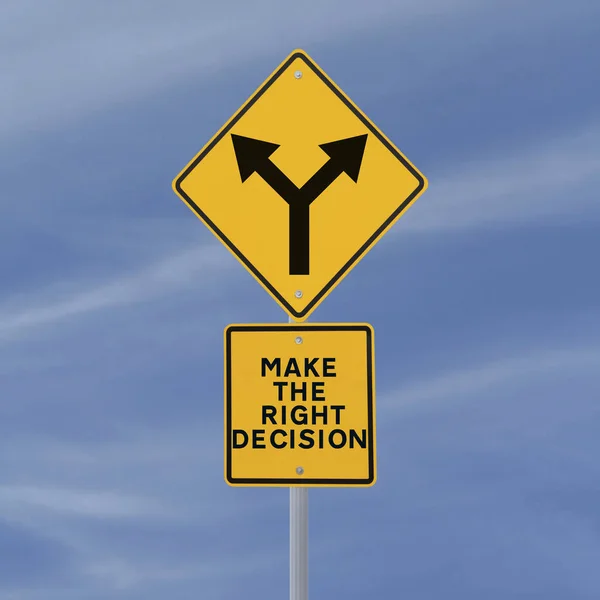
This is supported by research from the University of Waterloo and the University of Michigan. The researchers conducted a survey among 100 people and asked a question about relationships. Some were asked to imagine that their partner or spouse was cheating on them, others that their friend was the victim of infidelity. Participants then filled out a questionnaire that assessed their rational thinking skills.
“As the researchers expected, respondents who tried to help a friend showed a more rational approach than those who thought about themselves,” explains Melissa Dahl in an article in New York Magazine.
If you feel like you can't make up your mind about anything, try the same tactic and look at the situation from the outside. Ultimately, this will help to find a more reasonable solution.
It's time to make the right decisions
The ability to make the right decisions is one of the most important components of effective leadership. But, unfortunately, this is often easier said than done.
But, unfortunately, this is often easier said than done.
If you (like many of us) find it difficult to make decisions, here are some helpful strategies that can help you develop this valuable skill:
- Figure out exactly what the problem is.
- Leave minor decisions to others.
- Find some decent choices.
- Develop a decision framework or process.
- Take a break and delay your search for a solution.
- Think about what advice you would give to a friend if they were in the same situation.
By trying at least some of these strategies, you are guaranteed to improve your ability to make better decisions.
5 Ways to Make Difficult Decisions Faster
To begin with, you need to set yourself up for successful decision making. This process consists of three stages.
Take time to think
Of course you don't have time. But if you're pressed for time, it's a signal that you need to rethink your day-to-day planning overall. Paradoxically, in order to make quick decisions, you need to allocate time for this. Decision making is a task that needs much more attention than you can usually give when you wake up in the middle of the night with the unsettling thought of an urgent problem that you still haven't solved.
Paradoxically, in order to make quick decisions, you need to allocate time for this. Decision making is a task that needs much more attention than you can usually give when you wake up in the middle of the night with the unsettling thought of an urgent problem that you still haven't solved.
You may need only 30 minutes or an hour to consider small decisions. For more serious ones, several hours over two or three weeks. No matter how much time you have to make a decision, it is important to make sure to mark it on your calendar and regularly stick to the chosen schedule.
Decide what decision you need to make
Before you make a decision, you need to understand the nature of the choice you are making. For example, if you are thinking about changing jobs, then such a decision will affect not only your work responsibilities, but also the way to the office, salary, colleagues and more. By identifying the key factors that will affect your decision, you will quickly understand whether you are really happy with this or that choice (and why).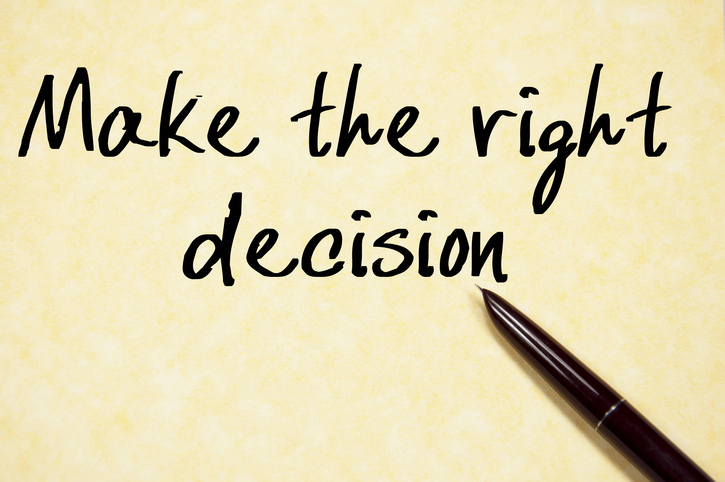 A new job offer might sound appealing, but you can't take two hours to get there every day.
A new job offer might sound appealing, but you can't take two hours to get there every day.
Photo: Felix Russell-Saw / Unsplash
Consider Your Options
Don't limit your choices to yes or no. Before making decisions, consider all possible options - you may find some compromises and alternatives that you did not notice right away. It is also worth considering whether you need to make any decision at all. Sometimes you can just go with the flow without interfering.
These were the basic principles of decision making. Now let's move on to methods that will help you make a choice faster. Each one is suitable for different situations.
Rely on your principles
If you have principles that you try to live by, it will be easier for you to make difficult decisions. For example, you know you want to spend a certain amount of time with your family, or a debt baseline that you don't want to exceed. When you need to make a decision about a business trip, a job with a long trip to the office, or a major purchase, you immediately understand that this or that decision will be contrary to your principles.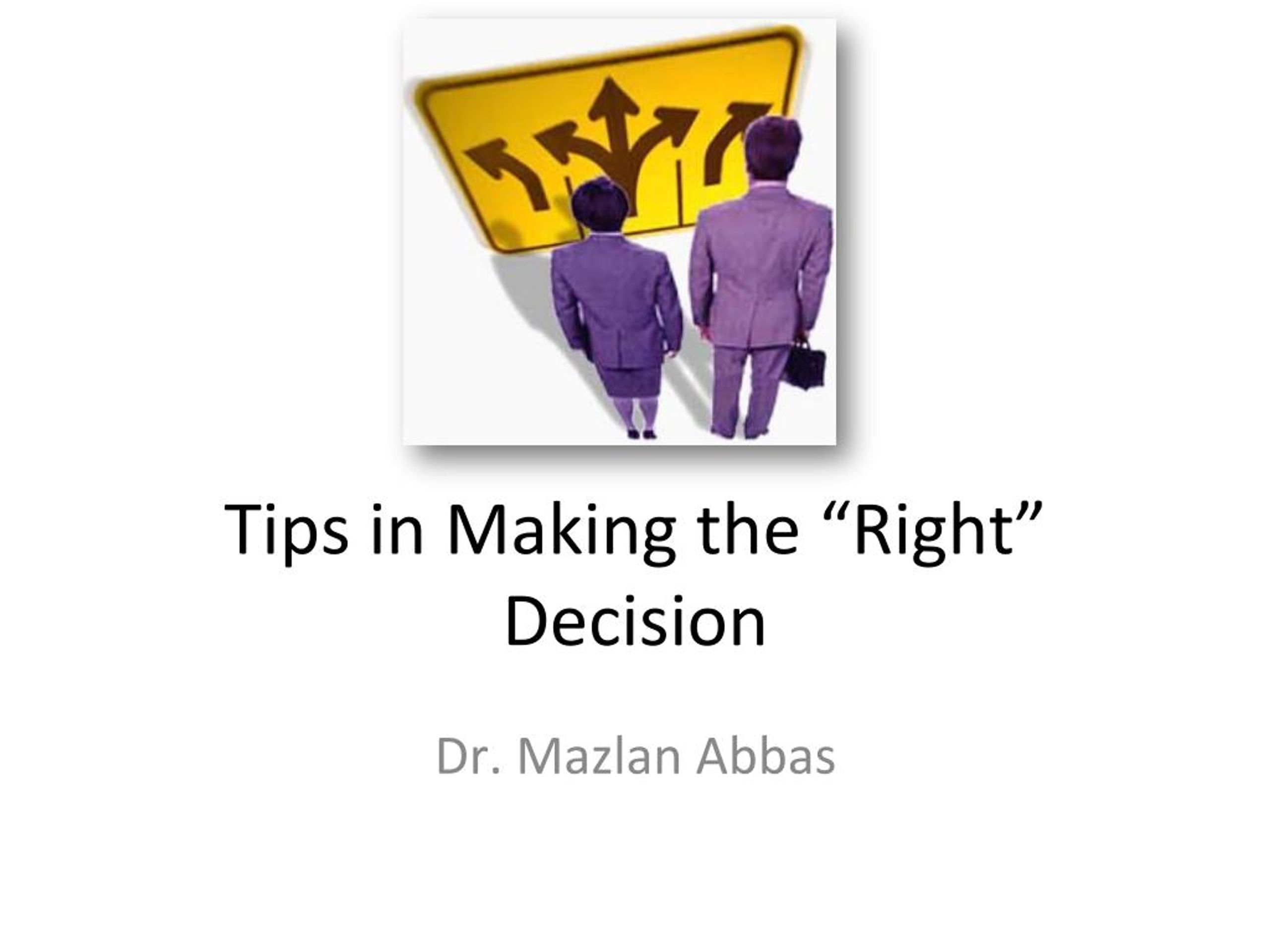
Say all the solutions
Some people find it helpful to say all the solutions. If you are one of them, then the fastest way you can make a decision after discussing it. It is not necessary to talk about it with knowledgeable people. You just need a good listener to let you speak. Most likely, by the end of your conversation, you yourself will make a decision, even if your interlocutor says almost nothing.
Photo: Christin Hume / Unsplash
Get an outsider's opinion
Sometimes you really need someone's advice. If you're going to do something you've never done before, it's best to ask someone who's been in a similar situation for advice. If you are inclined to make a decision, then if you seek advice, you will be able to decide faster. But be careful - do not blindly follow any advice. A choice that may seem obvious to some may not suit you. If you do not like what you are advised, you do not need to agree and endure. One way or another, the conversation can push you to a better decision.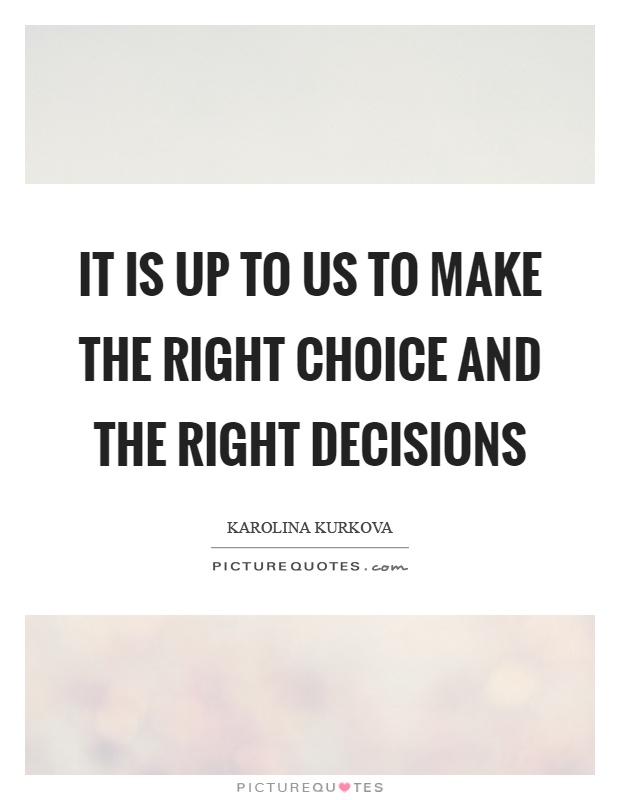
Try out your solution
In some cases, you can test a solution before making it. For example, if you are offered to move to another city for work, you can first go there and assess the situation or communicate with future colleagues in advance. At such moments, you are experiencing a new experience, and your body tells you how comfortable you feel in an unfamiliar environment.
Listen to yourself
Sometimes we can't make a decision because the brain thinks one option is rational, but the heart says that the other is right. In this case, it is worth thinking about what hopes you have. For example, you ask your mentor for advice - what do you hope he will tell you to do? If you want to toss a coin to make a decision, which side do you hope it will land on? We are not the most rational beings. Sometimes it is right to listen to our own hopes, because sometimes they tell us what decision we really want to make.
Life is full of difficult choices, but they don't have to be time-consuming.
